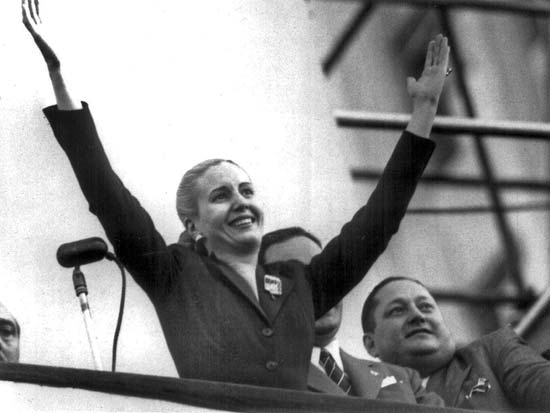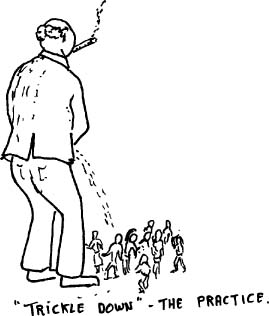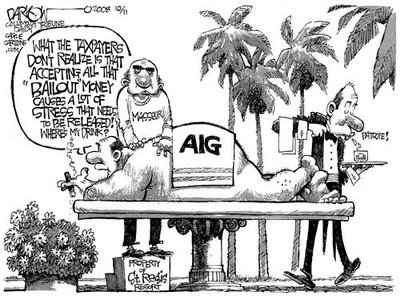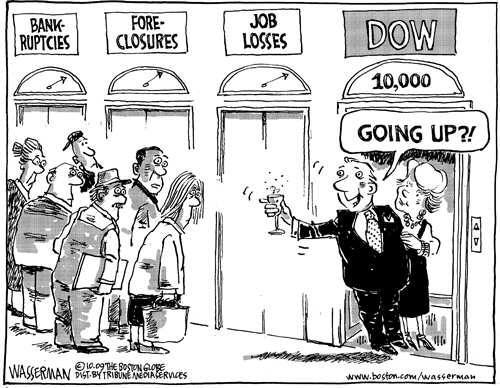The milquetoast, kinder-and-gentler conservative NYT editorialist David Brooks delivered another brightly burning ideational bulb today. Man, I wish he had had the time to show it to the missus first!
It is all downhill after this tipping point, reached in the piece’s fourth sentence:
Politics, some believe, is the organization of hatreds. The people who try to divide society on the basis of ethnicity we call racists. The people who try to divide it on the basis of religion we call sectarians. The people who try to divide it on the basis of social class we call either populists or elitists.The Populist Addiction – NYT – 1/26:2010
Brooks wants to bracket his main point with, as it turns out, a nonsensical treatment of populism. He’s made this main point previously in a review Ron Chernow’s biography of Alexander Hamilton. This review, titled Creating Capitalism, was published in April 2004 in the NYT.
From the review,
But Hamilton dreamed of a vibrant economy that would allow aspiring meritocrats like himself to rise and realize their full capacities. He sought to smash the aristocratic fiefs enjoyed by Southern landowners like Jefferson and to replace them with a diversified marketplace that would be open to immigrants and the lowborn. Their vigor, he felt, would drive the nation to greatness. ”Every new scene, which is opened to the busy nature of man to rouse and exert itself, is the addition of a new energy to the general stock of effort,” he wrote.
He started a political tradition, dormant in our own day, in which energetic government doesn’t oppose market dynamism but is organized to enhance it. Today our liberal/conservative debates tend to pit the advocates of government against the advocates of the market. Today our politics is dominated by rival strands of populism: the anticorporate populism of the Democrats and the anti-Washington populism of the Republicans. But Hamilton thought in entirely different categories. He argued that ”liberty may be endangered by the abuses of liberty as well as by the abuses of power.” He wanted a limited but energetic government that would open fields of enterprise and give new directions to popular passions.
His editorial is a recycle job.
Hamilton championed capital markets and Lincoln championed banks, not because they loved traders and bankers. They did it because they knew a vibrant capitalist economy would maximize opportunity for poor boys like themselves. They were willing to tolerate the excesses of traders because they understood that no institution is more likely to channel opportunity to new groups and new people than vigorous financial markets.
In their view, government’s role was not to side with one faction or to wage class war. It was to rouse the energy and industry of people at all levels. It was to enhance competition and make it fair — to make sure that no group, high or low, is able to erect barriers that would deprive Americans of an open field and a fair chance. Theirs was a philosophy that celebrated development, mobility and work, wherever those things might be generated.
And what was the status and stature of the industrial revolution in the first decade of the 19th century in the U.S.? (Hamilton died in 1804.) What, at the time, was the normal range of ambitions for the average man? ‘open field’ indeed!
Then, having raced downhill, Brooks writes one of the most astonishing sentences of his career:
If they continue their random attacks on enterprise and capital, they will only increase the pervasive feeling of uncertainty, which is now the single biggest factor in holding back investment, job creation and growth.
I’m going to offer an opposing idea: people are certain about the current state of the economy. Many people are certain about who got bent over and who did the bending too.
Ironically, Brooks offers implicit advice, advice perhaps dear to the capitalist’s heart. Last implied by Phil Graham, remember?
Yup, suck it up you whiners–you’re the real problem. ‘Just let us make some more dough now that we’ve managed to eke out a bit more productivity from our lucky surviving workforce.’ After all, Al Hamilton says so, and, let’s face it, we’re really a country about the faction-less dynamism of marching capital.







